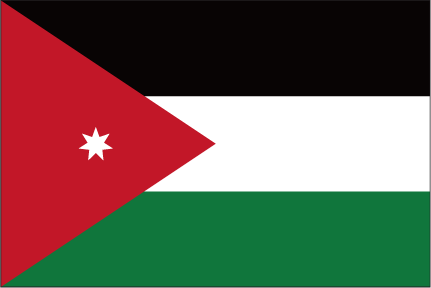Login form
Customs of Jordan
 Marriage and Family
Marriage and Family
In general, parents still play a significant role in arranging marriages. Young people often meet at the university or at work and request their parents’ assistance in their courtship and subsequent marriage. One-on-one meetings are generally reserved for after the engagement party or until the marriage contract has been signed. A bridal token is given to the bride’s family by the groom. Women tend to marry in their early 20s, and men marry when they have the means to support a family (usually by their early 30s).
The extended family shares a close relationship, often living nearby or in the same city. Children are given much attention, and the elderly are greatly respected and cared for by their children. Large families are traditionally desired, but family sizes are declining due to economic necessity. To be able to help another member of the family is considered an honor as well as a duty. Parents will often help or support their children even after marriage.
The father is considered head of the family and is expected to provide for the family financially. The mother is expected to take care of the children and household.
Eating
Most meals include meat and bread, along with vegetables and fruits that are in season. There are many types of bread; the most common is flat and round. The national dish of
It is traditional to eat food only with the right hand. When being entertained in someone’s home, it is polite for guests to leave a little food on their plate to indicate that they have been generously provided for. Coffee is important at any meal. Qahwah Saadah (Bedouin coffee) is bitter and drunk slowly from small cups. Arabic or Turkish coffee is sweeter; it is not stirred, so as to keep the thick grains at the bottom of the cup.
Socializing
Jordanians greet each other and strangers warmly. A handshake is most common, followed by inquiries about each person’s health. Friends of the same sex often exchange a kiss on either cheek. The most common and preferred greeting is Salam (“Peace”) or Al-Salamo Alaykom (“Peace upon you”). A usual reply to this greeting is Salam or Wa Alaykom Al-Salam (“Peace upon you, too”). Mar-haba (“Hi”) can also be used as a form of greeting. A phrase used to welcome someone is
To be invited to someone’s home is considered an honor. Invited visitors may bring gifts of flowers or sweets. Coffee or tea is almost always offered to guests, no matter how short the visit. Coffee is also served shortly before guests are expected to leave; a person does not leave before it is served. When drinking Arabic or Bedouin coffee, which are served in small cups, a person who has had enough to drink shakes the empty cup back and forth. Those not invited for a meal may be asked to stay for a meal, and it is usual to decline as many as three times before accepting.
Visitors should avoid excessive admiration of any object in the home because the hosts may feel obliged to offer it to them to demonstrate their generosity. It is normal to decline the offer, but if the hosts insist, the visitor may embarrass them by not eventually accepting. In general, whenever gifts are offered, it is impolite to accept them immediately. Excessive praise of children should also be avoided because it is considered to bring bad luck.
Recreation
Soccer is the most popular sport in
Holidays and Celebrations
National holidays follow the Western (Gregorian) calendar and fall on fixed dates. They include Labor Day (1 May), Independence Day (25 May), Arab Revolt and Army Day (10 June), King Hussein’s Accession to the Throne Day (11 August), and King Hussein’s Birthday (14 November). Christians celebrate Christmas Day (25 December) and Easter, but these are not national holidays. Islamic religious holy days follow the lunar calendar, which is a few days shorter than the Western calendar. One important holiday is ’Eid al-Fitr, a three-day feast at the end of Ramadan. ’Eid al-Adha is known as the Feast of Sacrifice and comes after the pilgrimage to Mecca Mecca (Makkah). The birth of the prophet Muhammad (Moulid al-Nebi) is also celebrated.
Source: Encarta Interactive World Atlas

